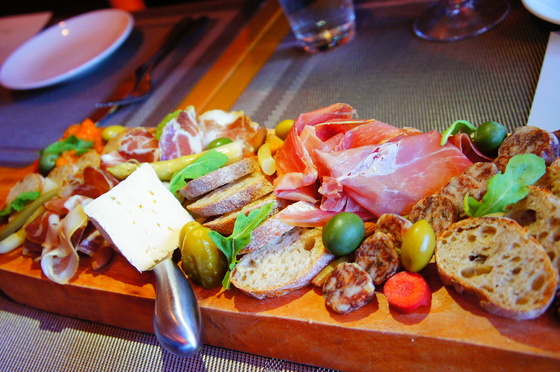Rereading old posts, came across this from five years ago. Still relevant, especially in the wake of the International Food Bloggers Conference held in Seattle last weekend. Which I didn't attend because it cost several hundred dollars (reduced to $99 if you pledged to write three posts; but I never write three posts about anything).

Let's get something out of the way up front. Bloggers don't get paid to write reviews. Sometimes we get free food, sometimes we don't. Sometimes we tell you if we get something free, sometimes we don't bother. This notion that an unpaid blogger is morally obliged to "disclose" a freebie, that's pure poppycock. Now, the New York Times has a code of ethics (and a staff ombudsman, and a staff ethicist), but then, so does West Point. That didn't stop Eric Asimov from writing nice things about a Portland restaurateur whose mother had once given his kids piano lessons, now did it? But it shouldn't matter.
The sanctimonious Federal Trade Commission now mandates that bloggers be required to tell their readers if they were being paid for product endorsements. Come on, I'll endorse a Lexus if you give me free samples. But a bottle of wine I get in the mail? Why should reporters on salary complain about bloggers who get free fries with their burger? Dude, your publisher supplies you with free office space, a free desk and a free laptop, not to mention phones, power and light. Bloggers, on the other hand, pay their own overhead; we'll "disclose" our freebies whenever you do. And check out the ads in your own papers for eateries and alcohol before you climb on that horse. They pay your goddamn salary, you hypocrites! </rant>
And, to be perfectly clear, the picture above was taken at Waterfront Restaurant in Kelowna, BC, which I visited in late August as part of a media delegation hosted by Tourism BC and BC Wines. More about their joint promotion of BC Wines later this week.
But first, back to some practical suggestions for people who frequent restaurants, as customers, invited guests or because they work in the biz. Cornichon often attends events as the guest of an establishment, but there ought to be a rule for anyone who's invited to an event: never order anything you're not prepared to pay for. Goes for journalists on expense accounts, too. Don't be greedy just because it's "free." If your meal is comped, should you be so fortunate, tip the server based on what it would have cost. If the owner or barman sends over a dish or a drink, your tip should be based on the value of the free stuff (and then some).
Now, some advice to people who eat in restaurants. Folks, when you're dining out, tip 20 percent. It's not higher math; it's double the tax. Then round it up. Special note to international visitors: don't weasel out of the 20 percent rule because you're a foreigner and "don't understand" that American checks don't include a service charge. That "percentage" is tax, not the tip. Every server has horror stories about getting stiffed by obnoxious, demanding Russians, Spaniards, Brits, Aussies, Asians or South Americans; it's a self-fulfilling prophecy. For the rest of you: don't nickle & dime your servers. If you're at a bar and you order a couple of drinks, five bucks. If you get a free glass of wine, leave five bucks on the table.
Cornichon (believe it or not) has been a server, too. It's a pretty easy way to make a hundred bucks or so in an evening, but you can't let it get to you. The golden rule: When your friends come in, treat them like good customers. When your regular customers come in, treat them like good friends. Treat all your customers with respect. You're supposed to be professional at work, remember. Don't give your friends better service than your regulars, don't treat your regulars with more obequious favors than you would bestow on a first-time visitor or casual tourist.
And if you're friends with someone who works at a restaurant, don't go there expecting special treatment, free food or free drinks. Be appreciative, but don't assume anything.
Now, if you're a customer and you're getting crappy service, don't automatically blame the server. The kitchen could be backed up, the dishwasher could be backed up, the toilet could be backed up, payroll could be backed up. Servers don't create unhappy customers on purpose. Unless they're ignoring the foreign visitors because they know they're going to get stiffed, right?
If you're a customer who's also "in the industry," don't use that fact to leverage upgrades. On the contrary, you of all people should know how hard it is for a restaurant to run smoothly, let alone deal with picky, self-absorbed guests.
Finallyk, a suggestion in the generous spirit of the season. If you had a lousy time, don't run to Yelp (or CitySearch or UrbanSppon) and tell the world. By all means, write your critique, but send it to the restaurant instead. Ask them if they'd be wiling to have you come back and give them another chance.
More than anything, restaurants want "ambassadors;" I promise, you'll be welcomed with open arms. That restaurant where you felt slighted? Turn the other (pork) cheek! Adopt that restaurant!
Leave a comment